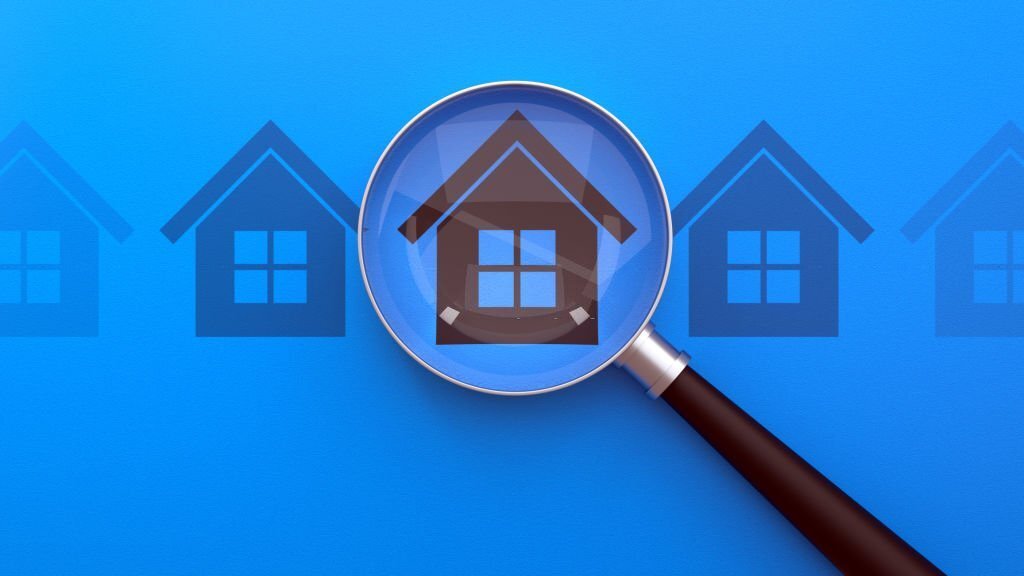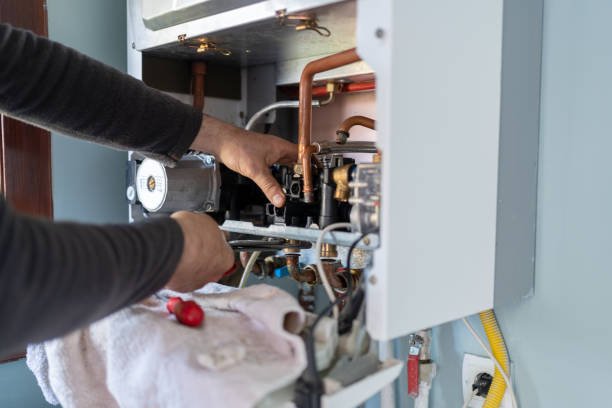Hey there, future homeowners! If you’re in the market for a new house, especially in the Motor City, you’ve probably heard about the importance of a home inspection. Whether you’re looking at a cozy bungalow in Corktown or a spacious colonial in Grosse Pointe, a thorough home inspection in Detroit MI is a crucial step in the home-buying process. But what exactly happens during a home inspection? What should you be prepared for? Don’t worry, we’ve got you covered with this comprehensive guide!
Why Home Inspections Matter
Before we dive into the nitty-gritty, let’s talk about why home inspections are so important. Think of a home inspection as a physical exam for a house. Just like you’d want to know about any health issues before committing to a long-term relationship, you want to know about any potential problems with a house before you buy it.
A good home inspection can:
- Reveal hidden issues that might not be obvious during a casual walkthrough
- Give you negotiating power if significant problems are found
- Help you budget for future repairs and maintenance
- Provide peace of mind about your investment
Now that we’ve covered the “why,” let’s get into the “what” and “how” of home inspections.
Before the Inspection: Preparing for the Big Day
Choosing an Inspector
Your first step is to choose a qualified home inspector. Here are some tips:
- Look for certifications from reputable organizations like the American Society of Home Inspectors (ASHI) or the International Association of Certified Home Inspectors (InterNACHI).
- Check reviews and ask for references.
- Make sure they’re familiar with local building codes and climate-specific issues.
Scheduling the Inspection
Once you’ve chosen an inspector, it’s time to schedule the inspection. Here’s what you need to know:
- Inspections usually take 2-4 hours, depending on the size and condition of the home.
- Try to schedule the inspection for a time when you can be present.
- If you’re the seller, make sure the house is accessible and that utilities are turned on.
During the Inspection: What to Expect
Alright, the big day has arrived! Here’s a breakdown of what typically happens during a home inspection:
1. Exterior Inspection
The inspector will start with the outside of the home, looking at:
- Foundation: They’ll check for cracks, settling, or other signs of structural issues.
- Roof: The condition of shingles, flashing, and gutters will be assessed.
- Siding: They’ll look for damage, rot, or signs of water intrusion.
- Windows and doors: The inspector will check for proper installation and signs of leaks.
- Grading: They’ll ensure the ground slopes away from the house to prevent water issues.
2. Interior Inspection
Next, it’s time to head inside. The inspector will examine:
- Walls, ceilings, and floors: They’ll look for cracks, water stains, or other signs of damage.
- Doors and windows: They’ll check for proper operation and signs of water infiltration.
- Staircases: Safety and structural integrity will be assessed.
- Attic: They’ll look at insulation, ventilation, and any signs of roof leaks.
- Basement or crawl space: Signs of water intrusion, insulation, and structural components will be checked.
3. Plumbing System
The inspector will examine the home’s plumbing, including:
- Water pressure and flow
- Visible pipes for leaks or corrosion
- Water heater condition and age
- Toilets, sinks, and bathtubs/showers
4. Electrical System
Electrical components that will be inspected include:
- Main panel and circuit breakers
- Outlets and switches
- GFCI protection in kitchens, bathrooms, and exterior areas
- Visible wiring for any obvious issues
5. HVAC System
The heating, ventilation, and air conditioning systems will be checked:
- Furnace or boiler operation
- Air conditioning performance
- Ductwork condition
- Thermostat functionality
6. Additional Areas
Depending on the home, the inspector might also look at:
- Fireplaces and chimneys
- Garages and outbuildings
- Decks and porches
- Pools or spas
After the Inspection: Understanding the Results
Once the inspection is complete, you’ll receive a detailed report. Here’s what you need to know:
Reading the Report
The report will typically include:
- A summary of major issues
- Detailed descriptions of each area inspected
- Photos of problem areas
- Recommendations for repairs or further evaluation
Common Findings and Their Implications
Let’s break down some common issues that might pop up in your inspection report:
- Foundation Issues:
- Minor cracks are common and often not a big deal.
- Large cracks or signs of settling could indicate serious structural problems.
- Implication: This could be very costly to repair; and might affect the home’s structural integrity.
- Roof Problems:
- Missing or damaged shingles.
- Signs of leaks in the attic.
- Implication: Depending on severity, could range from simple repairs to needing a full roof replacement.
- Electrical Issues:
- Outdated wiring (like knob-and-tube).
- Overloaded circuits.
- Implication: Safety hazard; may require rewiring parts or all of the house.
- Plumbing Problems:
- Leaky pipes.
- Outdated materials (like lead or polybutylene).
- Implication: This can lead to water damage and health hazards; and may require extensive replumbing.
- HVAC Concerns:
- Old or inefficient systems.
- Improper installation or maintenance.
- Implication: This could mean higher energy bills and the need for system replacement.
- Water Intrusion:
- Signs of past or current water damage.
- Poor grading around the foundation.
- Implication: This can lead to mold, rot, and structural issues if not addressed.
- Pest Infestations:
- Signs of termites, carpenter ants, or other wood-destroying insects.
- Evidence of rodents.
- Implication: This may require professional pest control and repair of any damage.
What to Do with the Information
Once you have your report, you have several options:
- Accept the house as-is: If the issues are minor or you’re prepared to handle them.
- Request repairs: You can ask the seller to fix major problems before closing.
- Renegotiate the price: If significant issues are found, you might ask for a lower price to cover future repairs.
- Walk away: If the problems are too extensive, you might decide this isn’t the right house for you.
Tips for a Successful Home Inspection
To get the most out of your home inspection:
- Be present: Attending the inspection allows you to see issues firsthand and ask questions.
- Take notes: Write down any concerns or questions as you go.
- Don’t be afraid to ask questions: A good inspector will be happy to explain their findings.
- Consider additional tests: Depending on the area and the home’s age, you might want to test for radon, asbestos, or lead paint.
- Remember, no house is perfect: Even new construction will have some issues. Focus on major problems that affect safety or will be expensive to fix.
After the Inspection: Next Steps
Once you have your inspection report, it’s time to decide how to proceed. Here are some steps to consider:
- Review the report thoroughly: Take your time to understand all the findings.
- Prioritize issues: Distinguish between major problems and minor repairs.
- Get estimates: For any significant issues, get quotes from contractors to understand potential costs.
- Consult with your real estate agent: They can help you navigate negotiations with the seller.
- Consider a follow-up inspection: If major issues were found, you might want a specialist to take a closer look.
The Bottom Line
A home inspection is a crucial step in the home-buying process. It gives you valuable information about the condition of the house and can help you make an informed decision about your purchase. Remember, the goal isn’t to find a perfect house (because there’s no such thing!), but to understand what you’re buying and what to expect in terms of future maintenance and repairs.
While the process might seem daunting, especially for first-time homebuyers, knowledge is power. Understanding what happens during a home inspection and how to interpret the results will make you a more confident and informed buyer.
So, whether you’re looking at a historic Victorian in Boston Edison or a modern loft downtown, approach your home inspection with curiosity and openness. It’s your chance to get to know the house you’re considering calling home. Happy house hunting, and here’s to finding your perfect (or perfectly imperfect) home sweet home!



